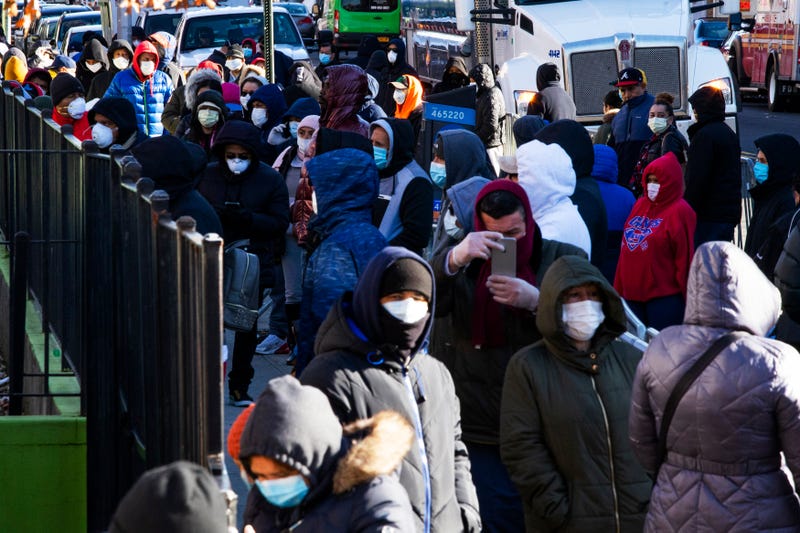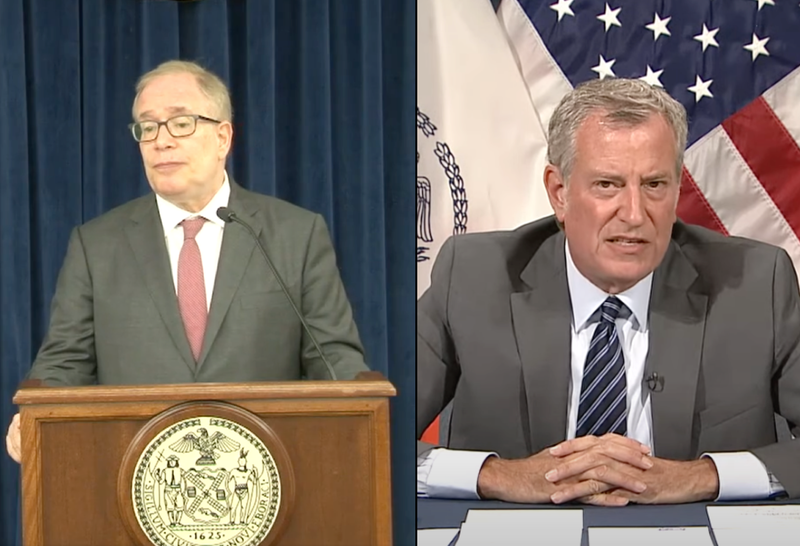
NEW YORK (WCBS 880) – Comptroller Scott Stringer on Wednesday accused City Hall of stonewalling his ongoing investigation that found New York City government was “unprepared” for the COVID-19 pandemic.
While announcing the findings of his continuing audit of the city's COVID-19 response, Stringer said that his office launched the probe back in May 2020 “with an open mind to learn about what went wrong, what went right and how we can be better prepared for the future.”
“Unfortunately, the City stalled and refused to submit the necessary documents and witnesses, so our investigation is still ongoing as of today,” the comptroller said.
An interim report of the comptroller’s ongoing investigation says that city agencies failed to plan, coordinate and prepare for a pandemic as the coronavirus spread overseas early last year. The City also lacked critical information about key resources like hospital beds and PPE, according to Stringer.
“The bottom line is the City never had a complete, citywide operational plan for responding to a pandemic,” Stringer told 1010 WINS on Wednesday. “As far back as 2006, as recently as 2013, all of our response plans were incomplete. They left large questions open as to who and how they would respond, and that played out starting in January 2020, when the CDC warned that this virus was coming, and the city agencies and City Hall did not come up with any kind of rational and reasonable response until sometime in the middle of March.”
“Unfortunately, the mayor has tried to prevent us from seeing all the data that the agencies have—emails, witnesses—so this is only a preliminary report,” the comptroller added. “But it’s very troubling, and we have to drill down on this.”
Mayor Bill de Blasio said he had not yet seen the comptroller’s report when asked about it at his briefing Wednesday.
“A couple of things are clear to me,” the mayor said. “There’s no way to fully understand a global pandemic until you’re in it. And second of all, none of us anticipated—anywhere—anything like this. And we needed federal leadership that wasn’t there.”
De Blasio said he wanted to “express my respect for the people who did the work, our health care heroes, our first responders—the folks who got all those PPE from all over the world, the folks who created out of thin air, literally created production lines here in the city for PPE, for ventilators.”
“The people in public service who made things happen, and made sure that care was there for people, and then put together a Test & Trace Crops, put together the biggest vaccination effort in the history of New York City. I think there’s a lot that says this city responded very powerfully,” the mayor said.
1010 WINS has reached out to the Mayor's Office for further comment.

Stringer’s report found that the COVID-19 response was “hampered by a lack of planning, coordination, and preparedness across City government.”
According to the report, a number of factors combined “to leave the City unprepared to protect its residents against COVID-19.”
Among them, the report said, were a lack of an operational plan for responding to a pandemic; delayed operational planning for a moderate to severe outbreak; weak resource management and inadequate data collection; expired stockpiles of PPE; and insufficiently clear roles and responsibilities of New York City Emergency Management (NYCEM).
“Our investigation shows weaknesses in planning and preparation and failures to promptly make decisions when time was of the essence and every minute counted,” Stringer said in a statement about the report.
Here’s are key findings from the report, according to the Comptroller’s Office:
• The City never completed a citywide operational plan for responding to a pandemic prior to COVID-19.
• Citywide operational planning for a moderate to severe COVID-19 outbreak was delayed.
• The City encountered weaknesses in its emergency resource management which became apparent as it prepared for COVID-19.
• The role and responsibilities of NYCEM were insufficiently clear.
The Comptroller’s Office outlined the following recommendations for the City to implement to improve preparation, planning and response efforts:
• Create, complete, and regularly update a citywide operational plan for future pandemics.
• Promptly conduct a thorough review of the City’s emergency planning to develop and update citywide operational plans for potential threats other than pandemics.
• Identify and maintain stockpiles of critical supplies, and implement controls to timely identify, procure, and replace stocks.
• Improve the data collection, management, and dissemination of information needed by decision makers and emergency response agencies.
• Review NYCEM’s capability to fulfill its Charter-mandated planning, coordination, information sharing, and support roles, clarify NYCEM’s role in emergency responses, and provide the support needed for NYCEM to fulfill its roles.

